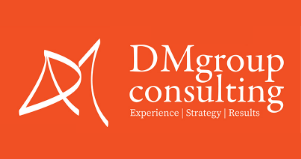For fundraisers striving to build lasting donor relationships, effective database management is like having a powerful tool in your toolbox. It’s the foundation that supports every fundraising campaign, big or small. Without a well-managed database, keeping track of donor interactions, preferences, and histories can become a challenging task. Do you ever find yourself scrambling to remember details about your donors or missing opportunities to engage them meaningfully? If so, it might be time to take a closer look at how you manage your database.
Database management isn’t just about storing information; it’s about using data in ways that enhance your outreach efforts and maximize fundraising potential. By keeping your database updated and organized, you can have a clear picture of who your donors are and what they care about. This clarity allows you to tailor your communications and build stronger connections. But how exactly does this all work? Let’s explore why database management matters so much for fundraisers and how it can elevate your approach.
Why Database Management Matters for Fundraisers
A well-organized database is more than just a record-keeping system; it’s a dynamic tool that can transform how fundraisers engage with donors. So, why does it matter so much? Here are a few reasons that stand out:
– Enhances Donor Relationships: Understanding your donors’ interests and past contributions gives you the ability to personalize your communications. This not only increases donor satisfaction but also encourages continued and increased giving.
– Boosts Efficiency: When your database is properly managed, locating donor information becomes quick and straightforward. This allows you to spend more time on strategic planning and creative outreach rather than administrative tasks.
– Increases the Effectiveness of Campaigns: Tailoring your campaigns with precise donor data increases the likelihood of success. You can target specific donor groups with campaigns that match their interests and have a higher chance of resonating with them.
Having clear and accessible data means you can focus on cultivating relationships and running impactful campaigns without getting bogged down by disorganized information. Think of a disorganized database like a messy desk. If you can’t find the right files at the right time, your productivity dips dramatically. Keeping it tidy and accessible makes everything flow smoothly, enhancing your overall efficiency and effectiveness as a fundraiser.
Key Features of an Effective Database Management System
Choosing the right database management system might feel like navigating a maze of options. However, knowing what features to look for can make the selection process clearer. Here are some key attributes that should be at the top of your list:
– User-Friendly Interface: A system that’s easy to navigate increases adoption among your team, ensuring the database is consistently used and updated.
– Customization Options: The ability to tailor fields and data categories to fit your organization’s unique needs ensures that the system grows with your requirements.
– Seamless Integration: Being able to integrate with other tools, like email marketing platforms, streamlines processes and enhances efficiency.
– Robust Reporting Features: Access to advanced reporting tools allows you to analyze data and gain insights that can inform strategy and decision-making.
– Data Security Measures: Keeping donor data secure is paramount. Look for systems that offer strong encryption and access controls.
By focusing on these features, you ensure your database management supports your efforts rather than complicating them. A good system acts as the backbone of your fundraising strategy, helping drive more informed decisions and more effective outreach efforts. When selecting a system, remember to consider the scale of your needs and future growth, ensuring flexibility and scalability.
Best Practices for Database Management
Managing a database effectively requires more than just having the right system—it’s also about implementing best practices to ensure it functions at its best. Here are some straightforward practices to maintain a healthy and productive database:
1. Regular Data Cleanup: Keeping the database clear of outdated or incorrect information prevents clutter and ensures that the data you’re using is always accurate. Set aside regular times, perhaps monthly or quarterly, to review and update records.
2. Consistent Data Entry: Standardizing data entry processes avoids confusion and mistakes. Ensuring everyone inputs data in the same format makes the database cleaner and easier to search. Consider creating a simple guideline document for team members.
3. Training Team Members: Equipping your team with the proper training ensures everyone is on the same page and capable of using the database efficiently. Occasional refresher sessions can be quite beneficial.
4. Secure Data Storage: Protecting donor data is a top priority. Implement strong security measures, like encryption and secure passwords, to safeguard sensitive information. Regularly update security protocols to adapt to new threats.
5. Backup Data Regularly: Regularly backing up your data prevents loss in case of unexpected technical failures. Schedule backups at regular intervals to ensure minimal disruption.
By integrating these practices into your database management routines, you can maximize functionality while minimizing errors. It’s like tidying up a workspace—keeping it organized means you always know where to find what you need.
How to Choose the Right Database Management System
Selecting the perfect database management system for your organization is a critical decision. Here are some factors and steps to guide this choice:
– Budget Considerations: Start by evaluating what your organization can afford without compromising on core features. There are many systems available, catering to various budgets and offering different levels of functionality.
– Scalability: Choose a system that can grow with your organization. As your fundraising efforts expand, you’ll need a database that easily adjusts to increasing data and user demands.
– Specific Needs Assessment: Identify the specific features that your organization requires, such as customized reporting, donor tracking, or integration with existing marketing tools. Match these needs with what systems offer.
– Evaluating Options: Take the time to research and demo different systems. Involving team members in this process can provide valuable input and encourage buy-in.
– Trial Periods: Utilize free trials or demo versions to get a feel for how a system works in practice. This hands-on experience helps determine if the system aligns with your operational flow.
Making an informed decision ensures that your database management system will be a supportive ally in your fundraising efforts. Investing time in choosing the right system can pay off significantly in terms of efficiency and effectiveness.
Final Reflections on Database Management for Fundraisers
Effective database management is an integral part of successful fundraising. By implementing best practices and choosing the right systems, fundraising professionals can streamline their operations, enhance donor relations, and improve overall campaign outcomes. Having a clear and organized database is like having a reliable roadmap for donor engagement, helping you navigate the various paths of relationship-building with ease.
The goal is to ensure that your database serves as a powerful tool for your organization. By regularly evaluating your practices and staying informed about new technologies and methods, you can continue to improve your database management strategies. This ongoing attention will not only lead to smoother operations but also help deepen the impact of your fundraising efforts. Taking the time to refine these processes reflects a commitment to strategic growth and dedicated donor care.
Elevate your fundraising campaigns by mastering database management with DM Group Consulting. Our expertise in fundraising strategy empowers you to optimize operations and enhance donor relationships effectively. By embracing tailored solutions and expert guidance, you can transform your database into a powerful asset for seamless engagement. Reach out to us today to help your organization grow and achieve fundraising success.




